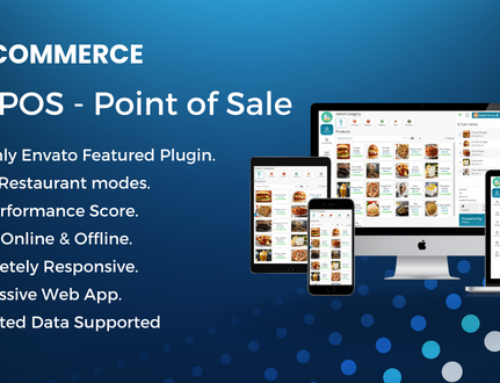What is Freelancer Marketplace?

A Freelancer Marketplace is an online platform that connects businesses or individuals with freelancers or independent contractors who offer their services on a project or task basis. Freelancer Marketplaces are also known as Online Talent Platforms, and they have become increasingly popular over the last decade due to the growth of the gig economy and the rise of remote work.
In a Freelancer Marketplace, clients can post jobs or projects, and freelancers can apply to work on them. These marketplaces offer a wide range of services, including graphic design, writing, programming, data entry, marketing, and much more. Freelancers can set their rates, and clients can choose from a pool of freelancers who meet their requirements.
One of the significant benefits of using a Freelancer Marketplace is the flexibility and scalability it offers. Companies can quickly ramp up their workforce when they need it, and freelancers can take on projects that match their skills and interests. Freelancer Marketplaces also provide access to a global talent pool, allowing businesses to find the best freelancers from around the world.
Another significant advantage of using a Freelancer Marketplace is cost savings. By hiring freelancers on a project basis, businesses can save on the overhead costs associated with hiring full-time employees, such as salaries, benefits, and office space. Freelancers, on the other hand, can save on commuting costs and enjoy the freedom to work from anywhere.
Freelancer Marketplaces are also beneficial for freelancers who are just starting their careers or looking to diversify their income streams. These platforms provide a way for freelancers to showcase their skills and build their portfolios. Freelancers can also gain valuable experience working on different projects, which can help them secure higher-paying jobs in the future.

One of the biggest challenges for businesses and freelancers using Freelancer Marketplaces is the issue of trust. Clients need to trust that the freelancers they hire will deliver high-quality work on time, while freelancers need to trust that they will get paid for their work. To address these concerns, Freelancer Marketplaces typically have systems in place to ensure that both parties are protected.
For example, most Freelancer Marketplaces have rating and review systems that allow clients to rate freelancers based on their performance. Freelancers can also rate clients based on their professionalism and communication. These systems help to build trust and ensure that both parties are satisfied with the outcome of the project.
Another way that Freelancer Marketplaces address the issue of trust is by holding payments in escrow. When a client hires a freelancer, the payment is held in escrow until the project is completed. This ensures that the freelancer will get paid for their work, and the client can be confident that they will receive high-quality work.
Freelancer Marketplaces provide a flexible, cost-effective, and efficient way for businesses and freelancers to connect and work together. They offer access to a global talent pool, provide opportunities for freelancers to build their skills and portfolios, and allow businesses to scale up their workforce as needed. While trust is a significant issue, Freelancer Marketplaces have systems in place to ensure that both parties are protected and can have a successful working relationship.
How does Freelancer Marketplace works
A Freelancer Marketplace is a platform where freelancers can connect with clients who need specific skills and expertise for a project or task. It operates on the principle of outsourcing, where individuals or businesses outsource tasks to freelancers who offer their services on the platform.
The Freelancer Marketplace works by bringing together clients and freelancers. Freelancers create profiles that showcase their skills, experience, and work samples. Clients post job listings for specific tasks or projects they need completed. Freelancers can browse through these job listings and submit proposals to the clients, outlining how they can complete the job and what their rates are.
Once a client accepts a freelancer’s proposal, the two parties can start working together on the project. The Freelancer Marketplace provides tools for communication and project management, making it easier for clients and freelancers to collaborate remotely. This includes features such as messaging, file sharing, time tracking, and payment processing.
The Freelancer Marketplace also ensures that both parties are protected during the project. The platform typically holds the client’s payment in escrow until the project is completed, ensuring that the freelancer is paid for their work. Additionally, the Freelancer Marketplace may provide dispute resolution services if any issues arise during the project.
Freelancer Marketplaces operate on a commission-based model. The platform charges a fee for every transaction that occurs on the platform. This fee can vary depending on the platform and the type of project, but it typically ranges from 5% to 20% of the project value.
The Freelancer Marketplace has become a popular way for businesses and individuals to outsource work. It offers many benefits, including access to a global pool of talent, cost savings, and flexibility. Businesses can hire freelancers for specific projects without the overhead costs of hiring a full-time employee. Freelancers, on the other hand, can work on projects from anywhere in the world and have more control over their schedules.
However, there are also some challenges associated with using a Freelancer Marketplace. One of the biggest challenges is finding the right freelancer for the job. With so many freelancers to choose from, it can be difficult for clients to determine who has the right skills and experience for the project. Additionally, there is a risk of fraud and scams, as some freelancers may misrepresent their skills or fail to deliver quality work.
To mitigate these risks, Freelancer Marketplaces typically have strict verification processes in place to ensure that freelancers have the necessary skills and experience. They may also have rating and review systems to help clients evaluate freelancers and provide feedback to the platform.
The Freelancer Marketplace is a valuable platform that connects clients with freelancers. It offers many benefits, including access to a global pool of talent, cost savings, and flexibility. However, it also has some challenges, such as finding the right freelancer for the job and mitigating the risk of fraud and scams. Despite these challenges, the Freelancer Marketplace has revolutionized the way that businesses and individuals outsource work, and it will continue to play a vital role in the future of work.
Freelancer marketplace is an online platform that connects businesses or individuals with freelancers who are willing to offer their services. It is a great platform for freelancers who are looking for work and businesses that need temporary or long-term help. Freelancer marketplaces have become increasingly popular in recent years, with many people turning to freelancing as a means of income or to gain experience in a particular field.
Freelancer marketplaces offer a wide range of services, from graphic design, writing, and web development to legal and accounting services. The platform works by allowing businesses to post projects or job openings, and freelancers can then apply for the job based on their skills and expertise. The business can then review the freelancer’s application and choose the most suitable candidate for the job.
One of the benefits of using a freelancer marketplace is the flexibility it offers. Businesses can easily find and hire freelancers without the need for a lengthy recruitment process. Freelancers, on the other hand, can work from anywhere, at any time, and can choose the projects they want to work on, making it a great option for those who want to work on a project basis.
The rules of the freelance marketplace
As the number of freelancers in the global workforce continues to grow, online freelance marketplaces have become a popular way for clients to connect with talented professionals. However, to ensure a successful experience for both clients and freelancers, there are some important rules that must be followed. In this article, we will explore the rules of the freelance marketplace and explain why they are important.
Communication:
Communication is the key to a successful project, and it is essential that both clients and freelancers communicate effectively with each other. This includes discussing project requirements, deadlines, milestones, and any other important details. It is important for both parties to be responsive and prompt in their communication, as delays can lead to missed deadlines and unhappy clients.
Professionalism:
Professionalism is critical when working in the freelance marketplace. Freelancers should always conduct themselves in a professional manner, responding to client inquiries in a timely and respectful manner. Similarly, clients should be respectful of freelancers’ time and expertise, and should treat them with professionalism and courtesy.
Payment:
One of the most important rules of the freelance marketplace is ensuring that payments are made in a timely and accurate manner. Clients should make sure they understand the freelancer’s payment terms and agree to them before the project begins. Freelancers should be clear about their rates and payment expectations, and should ensure that they receive payment for their work on time and in full.
Deadlines:
Meeting deadlines is crucial in the freelance marketplace, as missing a deadline can cause significant problems for both the client and the freelancer. It is important for both parties to agree on deadlines that are achievable and realistic, and to ensure that they are met.
Quality:
Quality work is essential in the freelance marketplace, and both clients and freelancers should strive to produce work that meets or exceeds expectations. Freelancers should make sure they understand the client’s requirements and deliver work that is of high quality and meets those requirements. Clients should provide clear feedback on the work they receive, and should be willing to work with the freelancer to ensure that the final product meets their needs.
Intellectual Property:
Freelancers must respect the intellectual property of their clients and ensure that they do not use or disclose confidential information without permission. Clients should also be clear about their expectations regarding the use of their intellectual property, and should ensure that any agreements related to intellectual property are clearly documented.
Feedback:
Feedback is an important part of the freelance marketplace, as it helps both clients and freelancers improve their skills and the quality of their work. Freelancers should ask for feedback from clients after completing a project, and should be open to constructive criticism. Similarly, clients should be willing to provide feedback on the work they receive, and should be clear about what they liked and didn’t like about the work.
Respect for the Marketplace:
Finally, both clients and freelancers should respect the freelance marketplace and the rules that govern it. This means not engaging in any behavior that could damage the reputation of the marketplace, such as spamming or engaging in fraudulent activities.
Conclusion
Overall, freelance marketplaces can be a great way for businesses to access specialized talent on a project-by-project basis without the need for long-term commitments or full-time employees. Freelancers, in turn, benefit from the flexibility and autonomy that comes with working on their own terms and being able to choose the projects they take on.
The benefits of using a freelancer marketplace include access to a large pool of skilled professionals, cost savings, flexibility, and scalability. Businesses can also find freelancers with niche skills and expertise that may not be available locally.
Both businesses and freelancers can use a freelancer marketplace. Businesses can find and hire freelancers for specific projects or tasks, while freelancers can find work opportunities and clients.
You can find freelancers on a freelancer marketplace by searching for specific skills, location, and budget. You can also post a job and receive proposals from freelancers who match your requirements.
To hire a freelancer on a freelancer marketplace, you need to create a job posting that outlines the project requirements, budget, and timeline. You can then review proposals from freelancers and select the one that best fits your needs.
Almost any type of project can be completed on a freelancer marketplace, including website design and development, graphic design, content creation, programming, writing, marketing, and more.
To ensure the quality of work on a freelancer marketplace, you can review a freelancer’s profile, portfolio, and ratings from previous clients. You can also communicate with the freelancer throughout the project to provide feedback and ensure that the work meets your expectations.
Most freelancer marketplaces have a payment system that allows you to pay the freelancer through the platform. You can typically pay using a credit card, PayPal, or other online payment methods.








